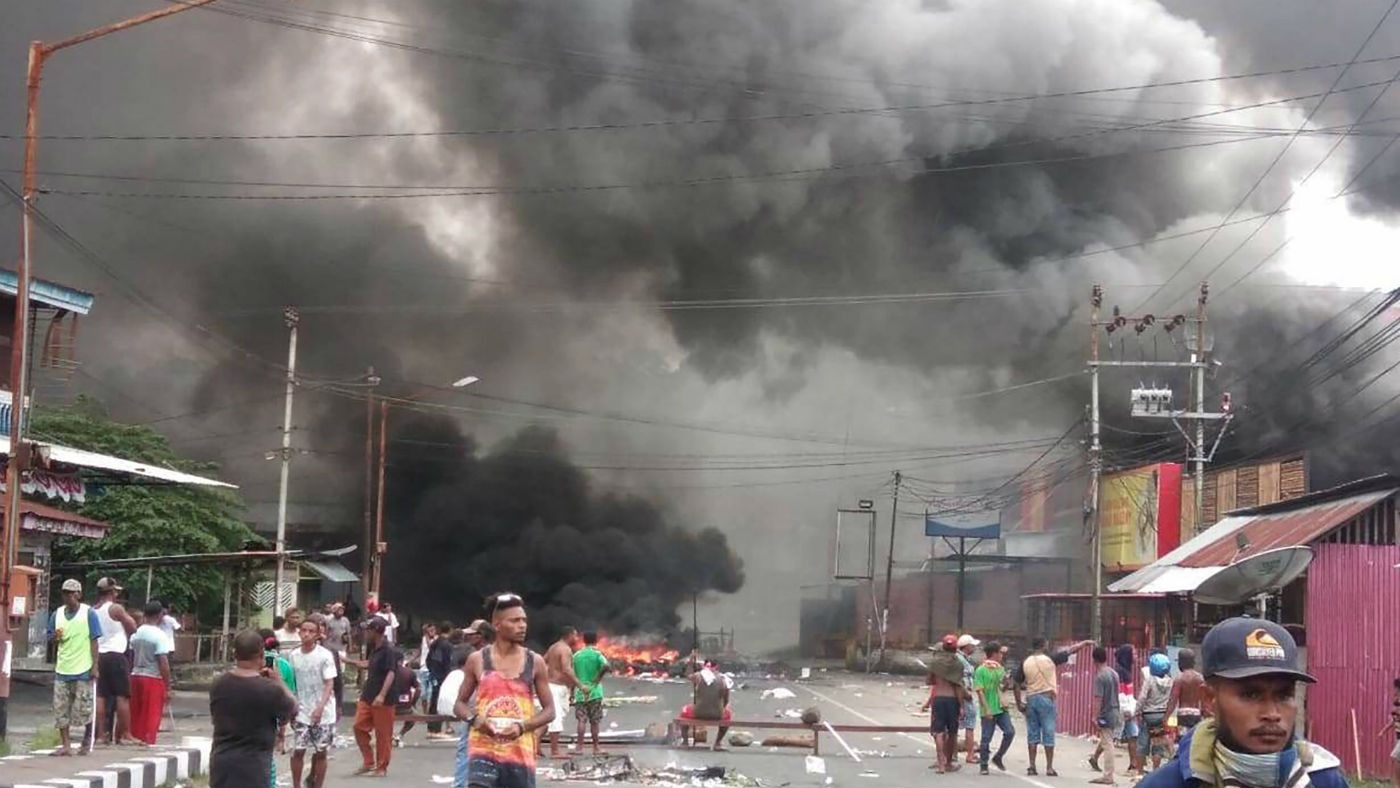What is going on in West Papua?
Indonesia sends 1,000 troops and cuts internet to western province in bid to quell biggest unrest in years

A free daily email with the biggest news stories of the day – and the best features from TheWeek.com
You are now subscribed
Your newsletter sign-up was successful
The Indonesian government has deployed more than 1,000 security personnel and cut internet access to West Papua in a bid to quell the largest unrest seen in the country’s poorest province in years.
Large-scale demonstrations have taken place across Indonesia all week, including in the capital Jakarta, where pro-independence protesters flew the banned Morning Star flag in front of the state palace.
The Guardian reports “the groundswell of anger that has fuelled the demonstrators was sparked by an incident in the Javanese city of Surabaya on the weekend, where nationalist groups goaded Papuan students with racist taunts, calling them ‘monkeys’, ‘pigs’ and ‘dogs’”.
The Week
Escape your echo chamber. Get the facts behind the news, plus analysis from multiple perspectives.

Sign up for The Week's Free Newsletters
From our morning news briefing to a weekly Good News Newsletter, get the best of The Week delivered directly to your inbox.
From our morning news briefing to a weekly Good News Newsletter, get the best of The Week delivered directly to your inbox.
In response, the exiled leader of the United Liberation Movement for West Papua, Benny Wenda, said the arrests of the Papuan students in Surabaya had “lit the bonfire of nearly 60 years of racism, discrimination and torture of the people of West Papua by Indonesia”.
As well as deploying troops to the region, Indonesia’s communications ministry announced on Wednesday that internet access would be temporarily blocked in Papua “until the atmosphere of Papua returns to being conducive and normal”.
Indonesia’s government has said throttling the internet in Papua was meant to stop the spread of misinformation, “though critics accuse it of using the tactic to clamp down on dissent” reports CNN.
The news network says “the rapid escalation of the protests underscores the volatility of the region and the tumultuous relationship between roughly four million Papuans and the central Indonesian government”.
A free daily email with the biggest news stories of the day – and the best features from TheWeek.com
The island of New Guinea has long been carved up by competing colonial powers. The eastern half – now Papua New Guinea – was administered by Australia, while the western provinces of Papua and West Papua formed part of the Dutch East Indies.
In 1969, the former Dutch colonies were “incorporated into Indonesia after a widely criticised UN-backed referendum”, Reuters reports. Only 1,000 people from the local Melanesian population were handpicked to vote in what was called the “Act of Free Choice”.
Half a century later, Papuan separatist groups continue to fight for both independence from Indonesia and unification with neighbouring Papua New Guinea.
There is anger at chronic poverty and under-investment by successive governments going back decades. Despite housing the world’s largest gold mine, owned by the US company Freeport McMoRan, and its immense natural wealth, West Papua remains the poorest region in Indonesia.
Tensions have been further stoked by years of allegations against the Indonesian security forces “of widespread rights abuses against Papua’s ethnic Melanesian population including extrajudicial killings of activists and peaceful protestors”, Channel News Asia reports.
In March, three Indonesian soldiers were killed in a violent ambush, believed to have been carried out by West Papua National Liberation Army, as part of mounting tensions over a controversial construction project.
Up to ten insurgents were also killed when “a force of 50 to 70 rebels carrying firearms as well as spears and arrows attacked a group of 25 soldiers in a battle lasting several hours”, The Guardian reported.
It was the latest outbreak of violence linked to the Trans-Papua highway, an ambitious project by the Indonesian government to link West Papua’s port towns to the interior, which is remote and underdeveloped, but rich in timber and palm oil.
The road’s construction is “spurring violent resistance from Papuan separatists who fear it will lead non-Papuans to exploit and destroy the rainforest they rely on”, says The Wall Street Journal.